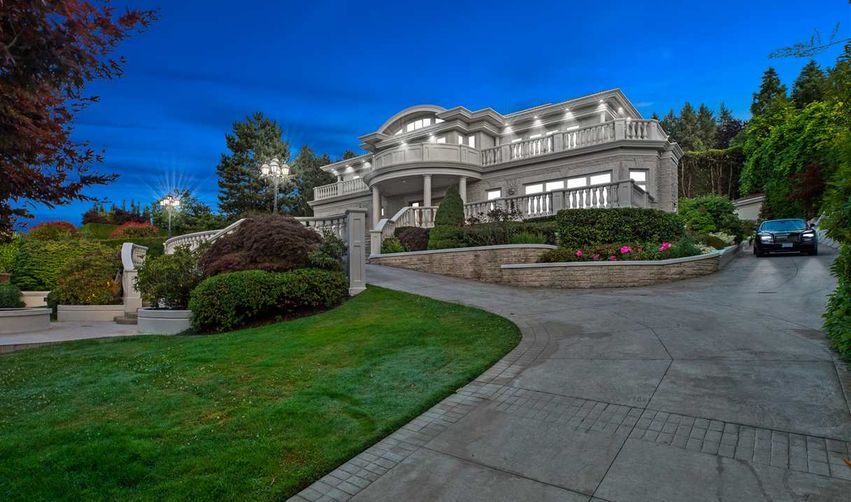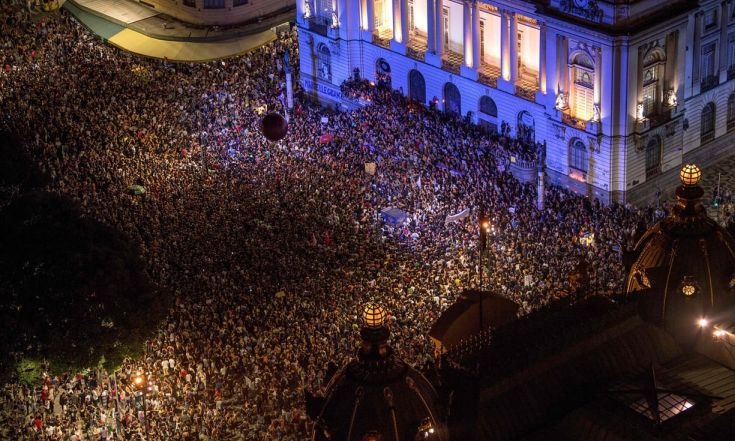Tax Mansions, Build Social Housing
The economic downturn triggered by COVID-19 has not spared any industry, and Vancouver’s housing market is no different, immediately hitting sales and in the future construction. Over 40,000 homes were built across the greater Vancouver region in May 2020, a mere two months after BC announced its state of emergency. Over two thirds of these homes were condominiums, planned ages ago to satisfy the city’s raging housing market, a large chunk of which was fueled by developer speculation. Despite the steady momentum of home construction, sales have dropped sharply since COVID-19’s outbreak. Figures released by The Real Estate Board of Greater Vancouver recently said that home sales totalled 1,485 in May, a 44 percent decline in the same month a year ago, and 54 percent below the May average for the last decade. The prices of these homes have seen a small drop of $7,600 in May. On the other hand, the rate of empty homes in Vancouver continues to be the highest in the country. Data from 2019 suggests a vacancy of 8.2 percent, which translates into roughly 25,000 empty homes in the city. This is before the sharp drop in Airbnb left many apartments empty. The highest vacancy rate, as expected, was in the sprawling mansions of West Vancouver, at 9.6 percent. %.
All of this points towards the obvious – pandemic or not, the housing market in this part of the world is grossly unaffordable. The only difference the pandemic has made is how these housing prices, with the aid of double-digit unemployment, have pushed household debt into a whirlpool of unpredictability. Nothing makes this more obvious than the contrasting opinions of the country’s major financial institutions. TD Canada Trust and Scotiabank predict that prices will rise up to 12 percent over the next two years. On the other hand, credit agencies such as Moody’s and DBRS Morningstar predict they could drop a further 30 percent. Even the Canada Mortgage and Housing Corporation (CHMC) predicts a decline of almost 18 percent. Figures on average household debt don’t make pretty reading either. The average Vancouver household is paying a staggering $2.40 in mortgages for every dollar earned, significantly higher than the national average of $1.76.
If your mind goes back to the financial crash of 2008 after reading all this, you’re not the only one. We are living through the single worst global recession of the 21st century, and it’s not over yet. This is exacerbated by the risk of negative equity and housing foreclosures, which was a major factor in the 2008 crash in the US.
What is the answer then?
Highlighting the problem is the start. Formulating the solution is the key.
There needs to be an immediate and significant increase in social housing (i.e., housing that is subsidized by government). Less than 10% of the housing in Vancouver is social housing and current wait times to get into it have grown substantially over the years. Much like all other crises of the modern world, this impacts marginalized communities the hardest.
One can look at The Whistler Housing Authority model, which set properties apart for purchase or rent in the past, available only to people who are employed or retired in the resort, and those who don’t own any other property. The people who bought these properties are only allowed to sell them to an increase equal to the national cost of living, not equivalent to the ski resort’s red-hot property market. Compared to property prices on the market, the homes that are part of the Whistler Housing Authority are sold at less than half. A quick glance at the Whistler Housing Authority website shows that in 2020 (up to May 21, 2020), the average price of properties sold is approximately $500,000. Even though the average price for properties in Metro Vancouver dropped slightly in 2019, it is still $1.1 million, over double that of Whistler..
Locally, the city of Vancouver has recently taken steps towards tackling the housing crisis, but they are only drops in the ocean. The Vancouver City Council introduced an Empty Homes Tax and a Foreign Buyers tax. There is also the Additional Provincial School Tax where all homes more than $3 million are charged a modest additional tax, however the Provincial School Tax revenue is going to the province and not the city. These taxes were aimed at slowing down soaring prices at the top end of the market, not providing affordable housing.
That is why Jean Swanson and COPE’s mansion tax, in the spotlight not too long ago, needs to be implemented in municipalities across Metro Vancouver. Swanson may represent Vancouver only, but her message has potency everywhere. The Mansion Tax is a proposal to tax mansions assessed between $5 million and $10 million an extra 1 percent, and those above $10 million an extra 2 percent. This is separate from the regular tax collection, including the school tax. Money raised here could help towards building non-market rental housing and take a significant step towards tackling homelessness. Back in 2018, it was estimated that this tax could potentially raise $174 million in the first year, the majority of which would come from just 420 mansions assessed over $10 million. The mansion tax is not complicated to understand. It is a simple graduated tax on property, based on progressive tax principles where the rich pay more, and the poor pay less.
Perfect solutions? No.
Steps in the right direct? Yes.
While it is true that fixing a system that is rotten will take time and struggle, municipalities across the Greater Vancouver region need to take radical measures to do so. Legislation by public officials, many of them tied to property developers, will only happen if there is a mass movement outside of city halls and on the streets. A movement that fights for everyone’s access to decent, safe, and affordable housing, which includes both building social housing and renovating existing homes.
If it wasn’t evident before, it should be now when we live through the economic nightmare of COVID-19 and the ugly political reality of neo-liberalism. Attempts to tweak or refine neo-liberalism have always proven to be futile, examples of which can fill up volumes of history books. When the dust dies away, the ruling class will attempt to massage us into a corner with promises of structural change, however, what we will witness are proposals that keep the capitalist machine in order. That is not change, but a mere illusion. Real change can only come through radical transformation of society into a democratic socialist one, fueled by a mass mobilization of the working class.
This current crisis is no different. A home should always be a real human right, not just in words. Every subsequent capitalist crisis makes this even more evident.


